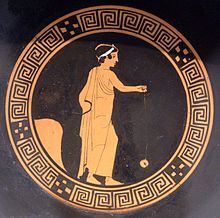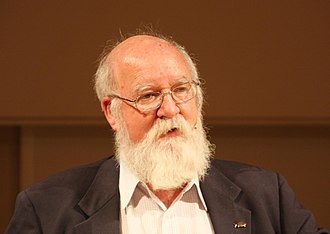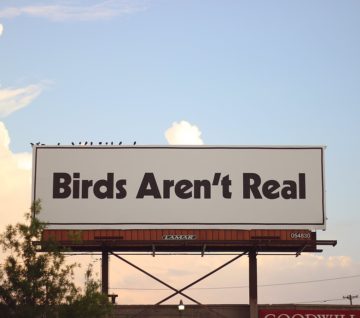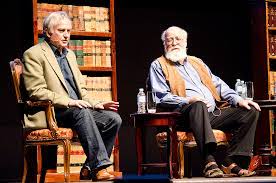If We Can Keep it: Is the U.S. a Democracy or a Republic?

by Tim Sommers I usually begin my “Ethics” course by asking, “What is the difference between ethics and morals?” I used to begin by literally asking the students that question, until I realized no one is happy about your very first question being a trick. So, here’s the difference. “Ethics” comes from Greek, “morals” come…
Has Science Discovered Animal Consciousness?

by Tim Sommers Here’s the gist of it. I think a recent declaration on animal consciousness, being signed by a growing number of philosophers and scientists, is largely correct about nonhuman animals possessing consciousness, but misleading. It insinuates that animal consciousness is a recent discovery – made in the last five to ten years –…
Dream of Money

by Tim Sommers The fella says, we must never forget that we are human. And as humans we must dream. And when we dream, we dream of money. —David Mamet/The Spanish Prisoner (1998) Long after Jesus held up a coin with Caesar’s picture on it and wisely counseled giving back to Caesar what, very obviously,…
Not Your Parents’ AI (Especially if your Parents are Functionalists)

by Tim Sommers The Theory of Mind That Says Artificial Intelligence is Possible Does your dog feel pain? Or your cat? Surely, nonhuman great apes do. Dolphins feel pain, right? What about octopuses? (That’s right, “octopuses” not “octopi.”)They seem to be surprisingly intelligent and to exhibit pain-like behavior – even though the last common ancestor…
The Obligation to Permit Immigration (or Not)

by Tim Sommers Global migration has been remarkably stable for decades. Despite that, media coverage of immigration tends to give the opposite impression. In the US, for example, there’s always a “crisis at the border.” But if there is a real crisis it’s not about the number of immigrants coming into the US relative to…
Ignorance and Blame During the Recent Alien Invasion
Terrible AI Arguments (and, No, AIs Will Not be Recursively Self-Improving on Computer-Like Time Scales)

by Tim Sommers (The butter robot realizing the sole purpose of its existence is to pass the butter.) In the halcyon days of “self-driving cars are six months away,” you probably encountered this argument. “If self-driving cars work, they will be safer than cars driven by humans.” Sure. If, by “they work,” you mean that,…
Theories of What Makes You, You
Can You Have an Obligation to Your Past Self?

by Tim Sommers Suppose you have loved yo-yos since you were a child. You’ve spent countless hours hanging out with other yo-yoers, learning tricks, and reading up on the history of yo-yos (which date back to at least 500 BCE (see above detail of Greek terracotta: “Boy with Yo-Yo circa 440 BCE”)). You have also…
Why David Hume Liked Gossip
Top 10 Reasons Experts Should Not Debate Nonexperts (plus a postscript on “Standing”)

by Tim Sommers Back in June, Dr. Peter J. Hotez, an expert on neglected tropical diseases and vaccines, made a splash when he categorically refused to participate in a public debate on vaccines with vaccine-denier Robert F. Kennedy, Jr. on Joe Rogan’s podcast. Dr. Hotez had been on Rogan’s show before, more than once, and…
The Death of Standing

by Tim Sommers Judges judge. The way to tell that someone is a judge, as opposed to a legislator, is to examine whether the judge judges actual ongoing controversies between particular people who have incurred, or will incur, specific harms – or not. In that sense, the difference between legislating and judging is locus standi…
Dennett Deux
Are Counterfeit People the Most Dangerous Artifacts in Human History?

by Tim Sommers Widely-respected philosopher, Tufts professor, one of the “Four Horsemen of the Apocalypse” of the New Atheists’ movement, and an “External Professor” for the prestigious Santa Fe Institute, Daniel Dennett recently took to the very public soap box of The Atlantic to issue a dire warning. “Today, for the first time in history, thanks to…
The Pizza (or Cognitive Bias and Uses of Distraction)

by Tim Sommers I’m not really interested in magic. But I am interested in crime. So, recently while reading a discussion of close-in magic by neuroscientists I perked up when they got to the question of how criminals, and others of questionable character (like magicians), steal wristwatches right off their victims’ wrist without being detected.…
Artificial General What?
Should We Be Color-Blind?

by Tim Sommers “Cleave,” “buckle,” and “dust” are contranyms. They are their own opposites. To dust means to remove, or sprinkle, with dust. To buckle means to collapse or secure. To cleave means both to divide and to stick to tenaciously. In that spirit, an astro-turf Federalist Society group, opposing affirmative action and pro-active diversity…
Is the Simulation Argument an Improvement on the Dream Argument?

by Tim Sommers “Suddenly he woke up and there he was, solid and unmistakable Zhuang Zhou. But he didn’t know if he was Zhuang Zhou who had dreamt he was a butterfly, or a butterfly dreaming that he was Zhuang Zhou.” — Zhuangzi (translation by Burton Watson) “We are almost certainly living in a computer simulation.”…
If the Medium is the Message, What is the Message of the Internet?

by Tim Sommers What’s the greatest prediction of all time? By “greatest,” I mean something like how big a deal the thing predicted is multiplied by how accurate the prediction was. I would love to hear other proposals in the comments, but mine is Andy Warhol’s prediction that, “In the future, everyone will be famous…






